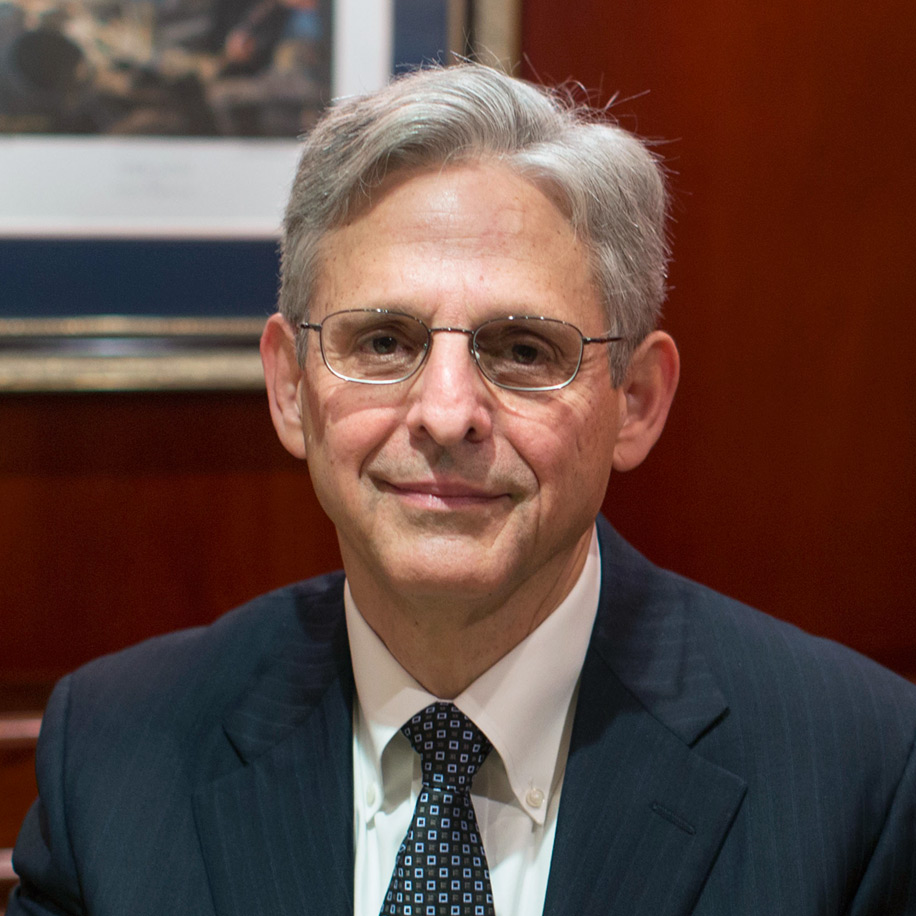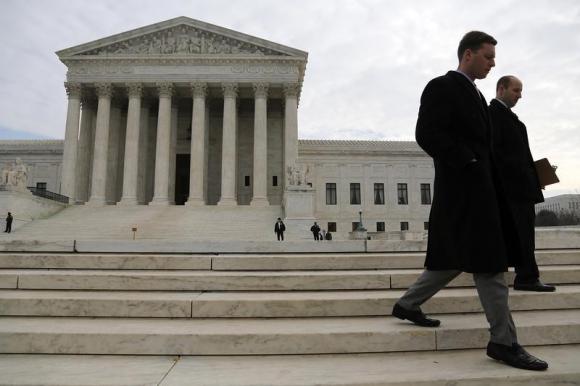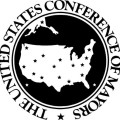On Wednesday morning, President Obama’s nominated Chief Judge Merrick Garland of the U.S. Court of Appeals for the District of Columbia to serve as an Associate Justice of the U.S. Supreme Court.
President Obama said, “In putting forward a nominee today, I am fulfilling my constitutional duty. I’m doing my job. I hope that our Senators will do their jobs, and move quickly to consider my nominee. That is what the Constitution dictates, and that’s what the American people expect and deserve from their leaders.
As a federal prosecutor, Garland oversaw some of the most important federal criminal cases in recent history, including the prosecutions of Timothy McVeigh and Terry Nichols for the Oklahoma City bombing as well as the government’s responses to the Unabomber and the Montana Freemen.
Reaction to the Garland nomination was swift. United States Senate Majority Leader Mitch McConnell says he will not consider the nomination because it’s an important election year. McConnell initially said he wanted the next President to make the nomination.
Many national, state and local leaders also weighed in.
“Now that President Obama has made his choice for the nominee, Congress must not delay in doing its job and moving forward on the nomination. Our next Supreme Court justice deserves a full hearing and a vote in a timely manner,” said Teamsters General President Jim Hoffa.
“President Obama has nominated a strong candidate for the Supreme Court. Now the members of the Senate must fulfill their constitutional obligation as a functional, deliberative body. We do not stand for the politics of obstruction in New York, and the U.S. Senate should not either.
“Partisan gridlock has already succeeded in immobilizing entire functions of the legislative and executive branches of the federal government – we cannot allow it to hinder our courts as well.” — Governor Cuomo
Mayor Bill de Blasio offered, “President Obama fulfilled his responsibility and nominated a highly qualified federal judge, Merrick Garland, to the Supreme Court. Now, the Senate must uphold its own responsibility – a responsibility that should and must be above politics. Too much hangs in the balance: the future of immigrant families; a woman’s right to choose; affordable health care; labor protections; our environment; and so much more. It’s now time for the Senate to do its job: consider and vote on the President’s nominee without obstruction or delay.”
Leo W. Gerard, International President of the United Steelworkers (USW) union called on Senate Majority Leader Mitch McConnell (R-Ky.) and the U.S. Senate to hold a confirmation hearing as required by the Constitution.
“This nomination process should be about upholding American values for a Supreme Court that serves all of us in these challenging times. The Republican leadership cannot play roughshod short term politics,” said Gerard.
“Today, President Obama did his job and announced a highly qualified nominee in Judge Merrick Garland, who has 19 years of experience on the U.S. Court of Appeals for the D.C. Circuit, to fill the vacancy on the United States Supreme Court. As I stated along with 20 other Attorneys General in a letter to Senate leaders, the chamber has a responsibility to consider and approve or disapprove the nomination a President puts forward. Failure to fill the vacancy would undermine the rule of law and ultimately impair the functioning of state governments within our federal system. The Senate should move forward, do its job, and hold a hearing and a vote without unnecessary delay,” added NY State Attorney General Eric Schneiderman.
Bronx Congressman Joe Crowley commended President Obama on his nomination of Chief Judge Merrick Garland. Crowley pointed out that over the course of his career, Chief Judge Garland accumulated the judicial experience and legal acumen needed to serve on the Supreme Court. “There is no question Chief Judge Garland will be a thoughtful and prudent jurist and will be a distinguished addition to the bench,” he said.
“Now that President Obama had done his job, it is time for Republicans in the Senate to fulfill their constitutional obligations and consider his nominee by holding a fair hearing and timely vote. There is critical business in front of the Supreme Court this term and our democracy relies on a fully-functioning court,” said Rep. Crowley.
“The nomination of Chief Judge Garland provides another opportunity for us to bend the moral arc of justice closer to all people in our nation. Garland was a clerk for the late Supreme Court Justice William Brennan, served as Deputy Attorney General in the Justice Department and most recently the Chief Judge of the United States Court of Appeals for the District of Columbia Circuit. In Garland’s words: “The role of the court is to apply the law to the facts of the case before it—not to legislate, not to arrogate to itself the executive power, not to hand down advisory opinions on the issues of the day.” Confirming Garland to the Supreme Court means appointing someone who will remove partisanship when voting on cases before the Supreme Court. Garland’s strong track record and dedication to public service makes him a qualified candidate to fill the current vacancy created by the death of Justice Antonin Scalia.” — Assemblyman Michael Blake
American Federation of Government Employees National President J. David Cox Sr. is calling on the Senate to hold a nomination hearing and vote on Chief Judge Merrick Garland of the U.S. Court of Appeals for the District of Columbia Circuit.
“The American people expect our elected leaders to do their job. Anything less is obstructionist and a miscarriage of justice,” said Cox.
Family Research Council President Tony Perkins said in a statement:
“This November, Americans will speak to who they want nominating the next Justice for the United States Supreme Court. The American people should have a say, and the Senate should respect Americans’ desire to speak to this important issue by declining to schedule hearings and votes on a Supreme Court nominee this year.
“Declining to vote on this nominee is, in effect, withholding consent to the nominee. Twenty-five other nominees to the Supreme Court have not received an up-or-down vote.”


















Follow Us